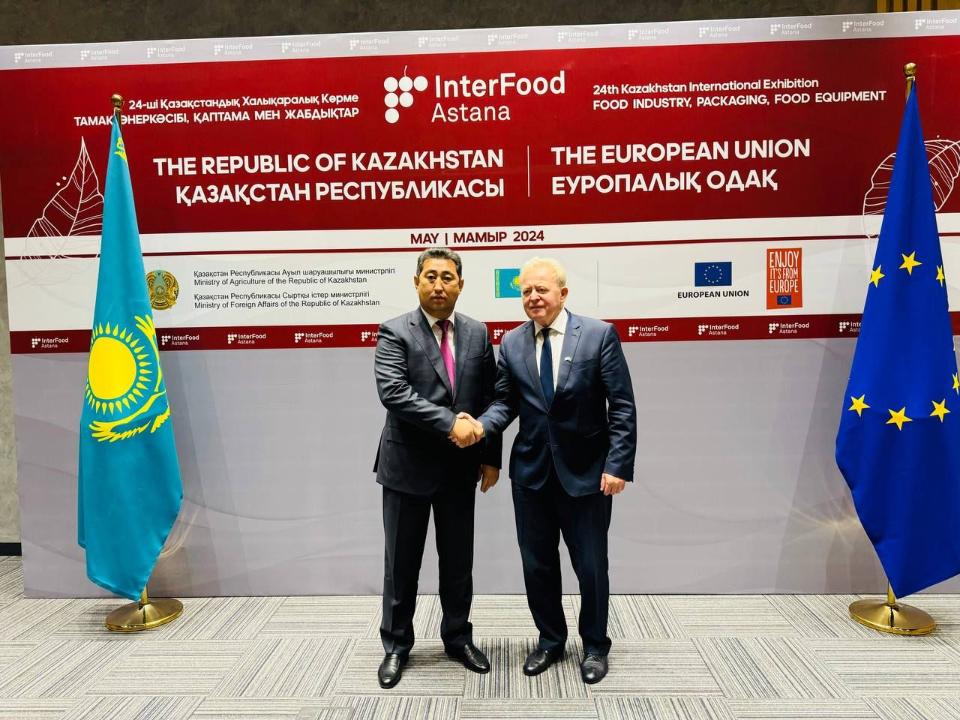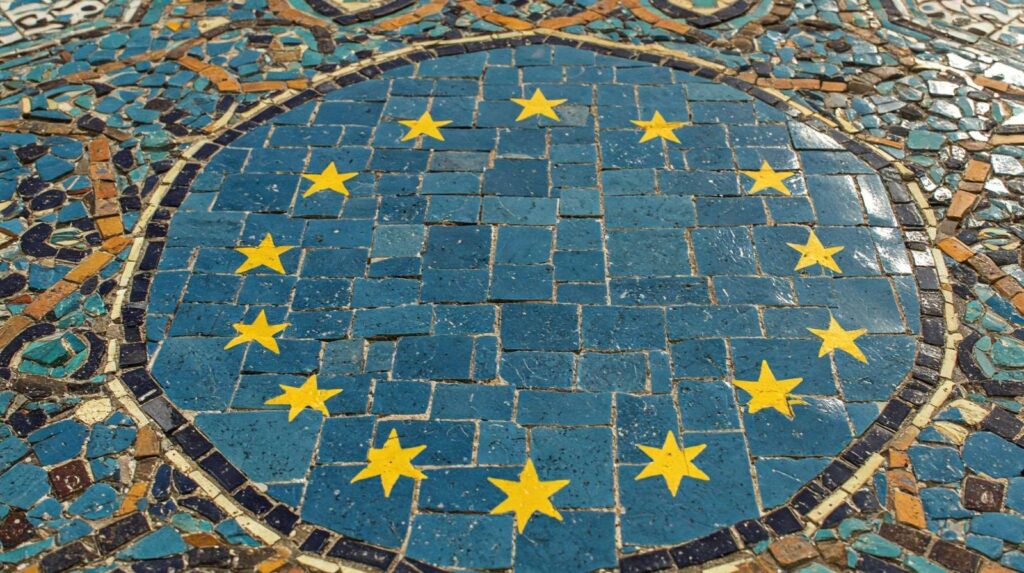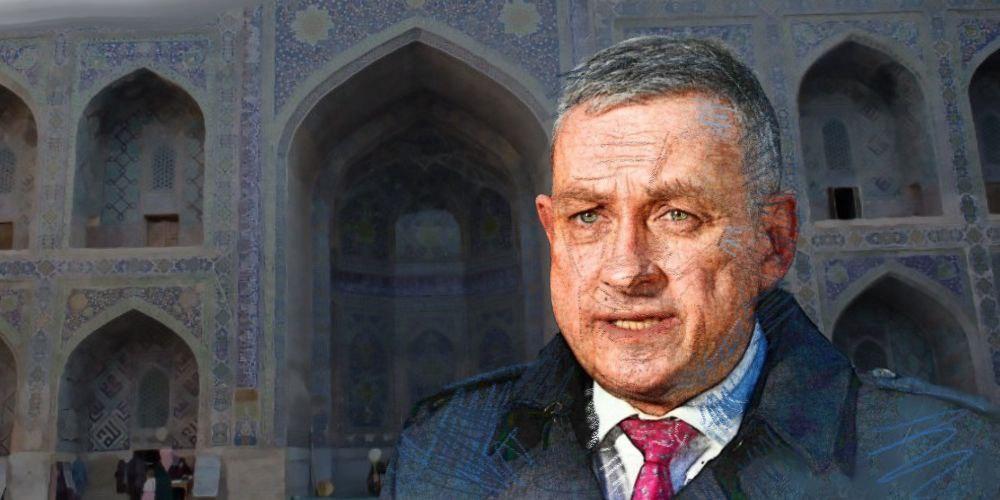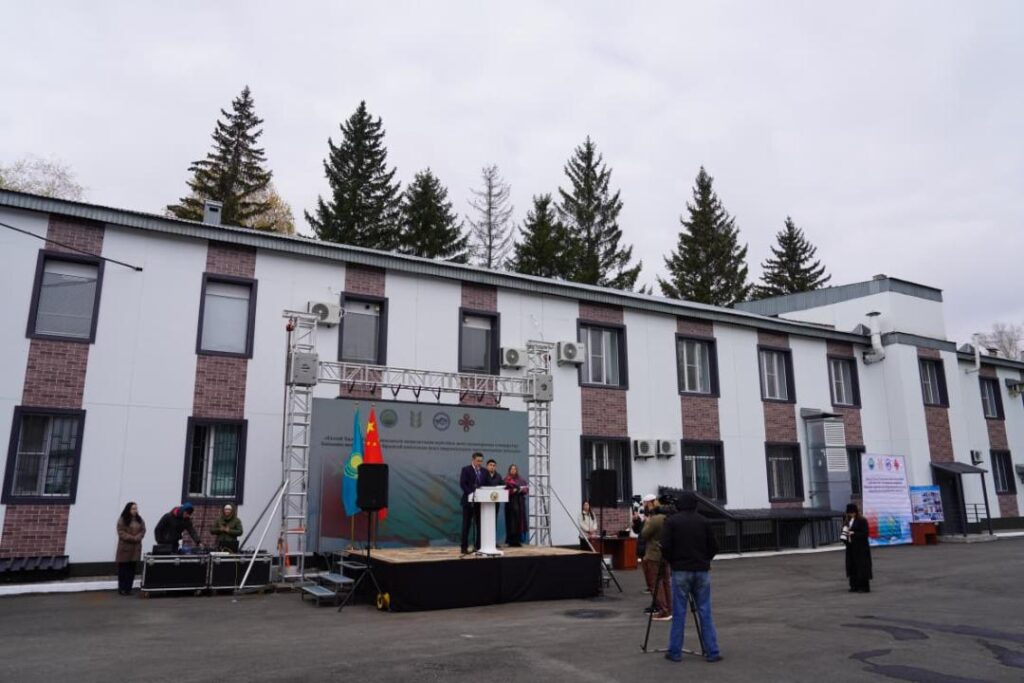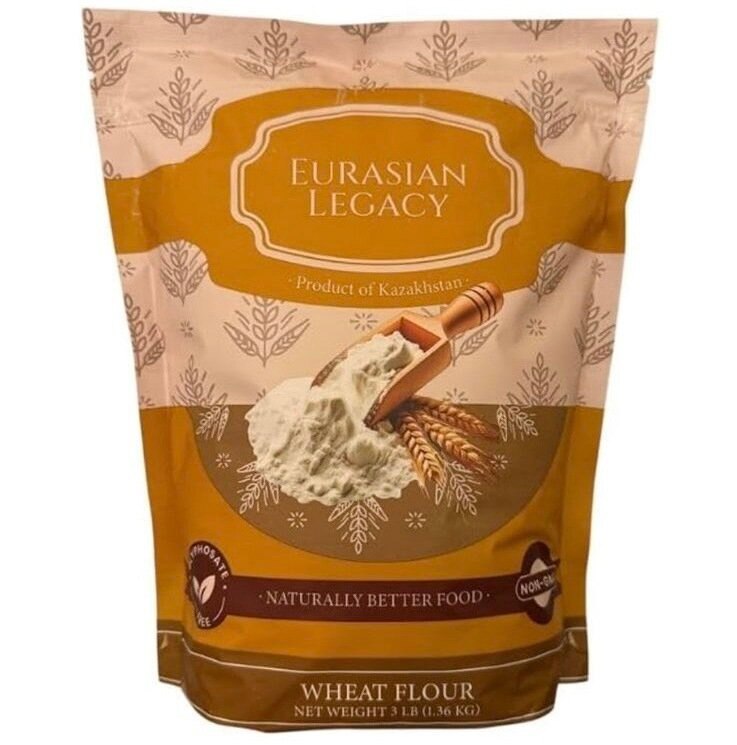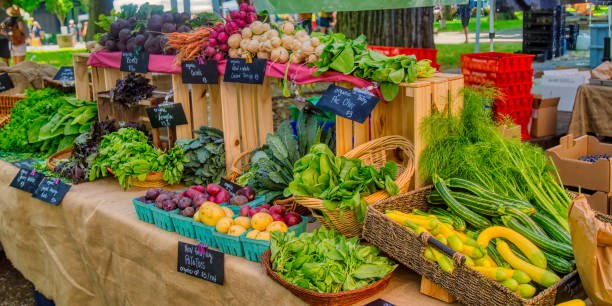On May 29, Kazakhstan Agriculture Minister Aidarbek Saparov entered discussions with European Commissioner for Agriculture Janusz Wojciechowski for the removal of trade barriers for agricultural products.
The conference took place during the European Commissioner’s first High-Level Mission to Kazakhstan, attended by a delegation of 40 agri-food businesses and organizations from across the European Union.
Saparov and Wojciechowski agreed to continue discussions on the technicalities of opening the EU market for Kazakh honey, meat, and dairy products, as well as the export of pig and poultry products from EU countries to Kazakhstan.
In 2023, Kazakhstan exported 650 thousand tons of wheat to EU countries, alongside flax seeds, rapeseed, and processed grain crops.
Although Kazakh producers are not yet licensed to export livestock products to the EU, Kazakh fish is in high demand by European buyers. Of Kazakhstan’s 70 fish processing enterprises, 18 have been granted the right to export their products to the European Union countries. In 2023, Kazakhstan’s exports of fish products amounted to around 25 thousand tons, worth $85 million. About 11 thousand tons were exported to EU countries including Germany, the Netherlands, Denmark, and Lithuania for a total of $60 million.
With a long tradition of livestock farming, Kazakhstan is naturally eager to export its meat, particularly horsemeat. Minister Saparov therefore proposed intensifying efforts to export such produce in tandem with securing approval to export Kazakh honey to the EU.
In a press statement ahead of his visit, Commissioner Wojciechowski announced, “This High-Level Mission is a strong signal of our intention to further strengthen our partnership and our bilateral trade in agri-food products with Kazakhstan.”
Kazakhstan remains a key gateway for EU food and beverage producers seeking entrance to the Central Asian market, and Kazakhstan itself, is an important destination for EU agricultural exports, which in 2023, amounted to €702 million.
